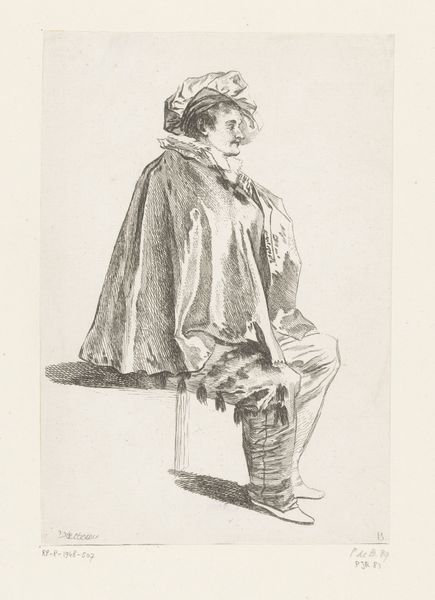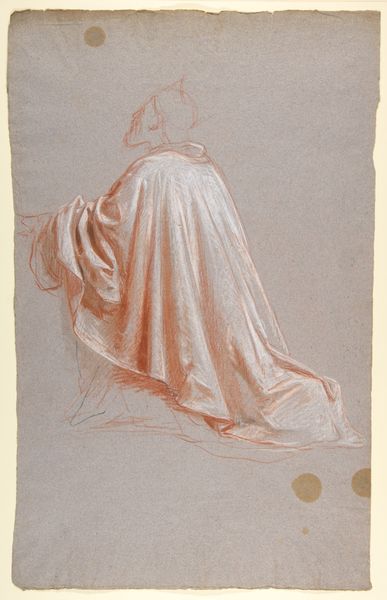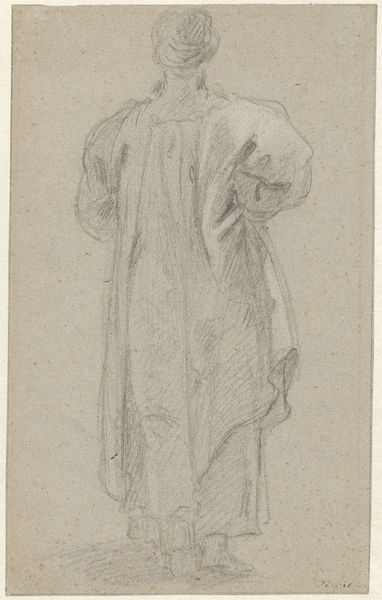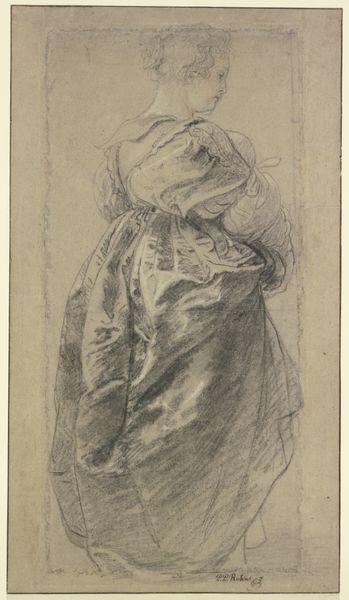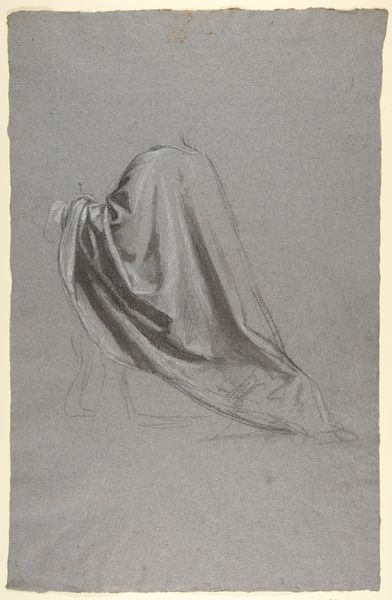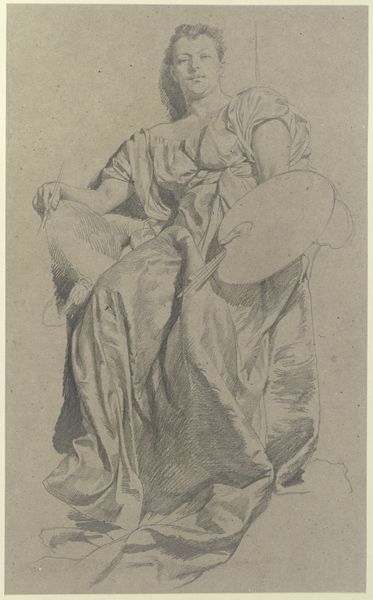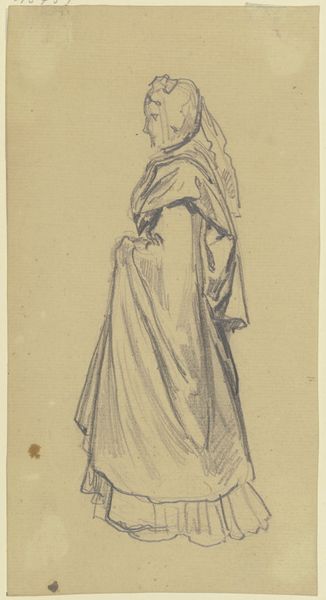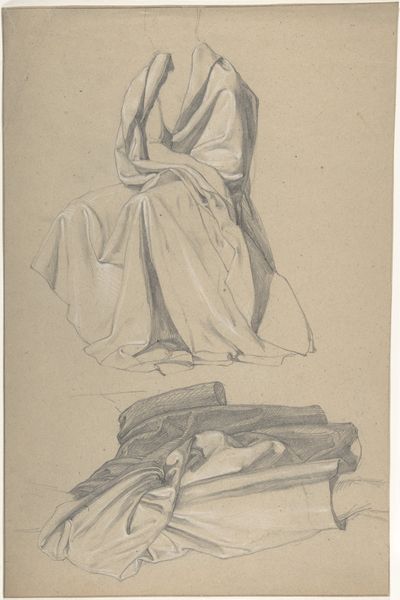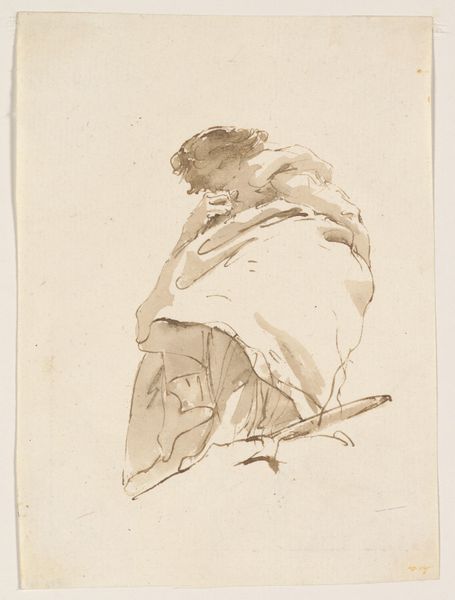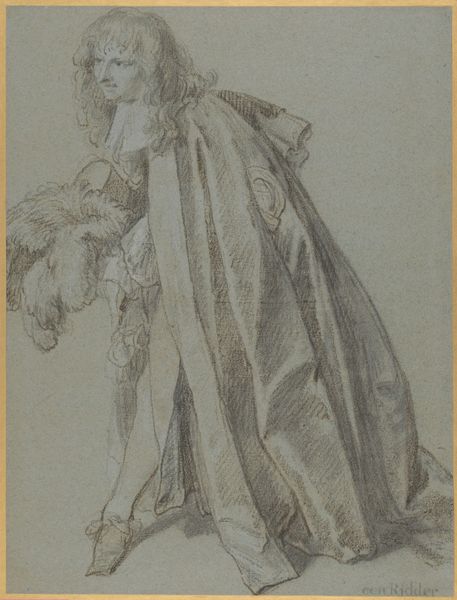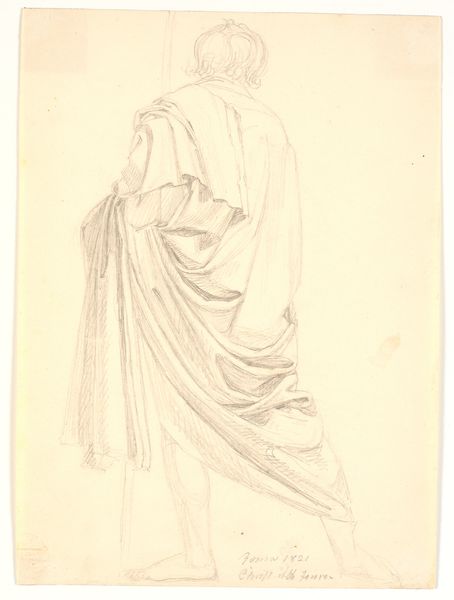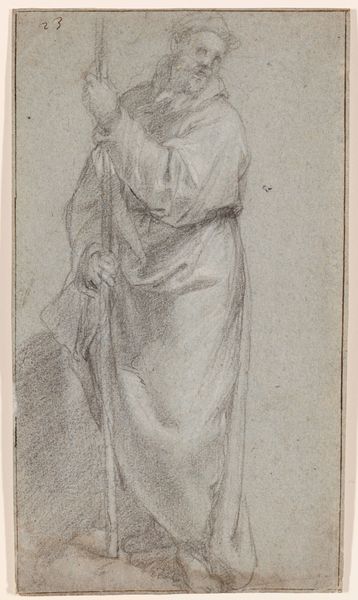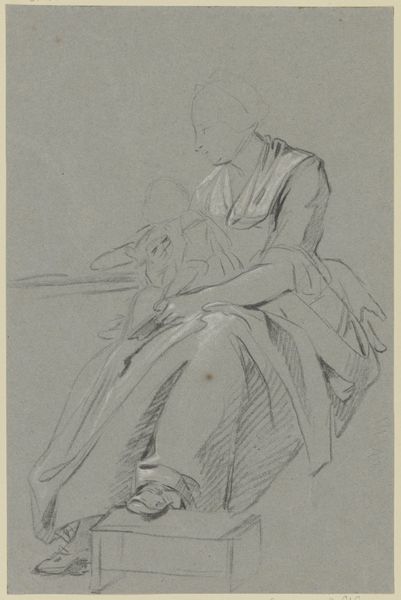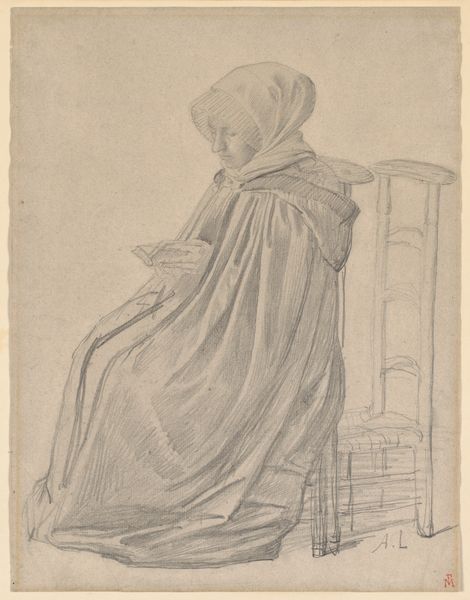
Drapery Study for a Bishop (lower register); verso: Sketch of a sleeve; (studies for wall paintings in the Chapel of Saint Remi, Sainte-Clotilde, Paris, 1858) 1830 - 1875
0:00
0:00
drawing, print, pencil
#
portrait
#
pencil drawn
#
drawing
# print
#
pencil sketch
#
figuration
#
pencil drawing
#
pencil
#
history-painting
#
academic-art
Dimensions: 18 15/16 x 12 in. (48.1 x 30.4 cm)
Copyright: Public Domain
Editor: This is Isidore Pils' "Drapery Study for a Bishop," dating from between 1830 and 1875. It's a pencil drawing, a preparatory sketch, really. I’m struck by the texture and the weight suggested in the folds of the fabric, even though it's just a sketch. What can you tell me about the social or political context of such studies? Curator: Precisely! It is interesting how a seemingly simple study of fabric can reveal so much about power, identity, and the structures of 19th-century French society. Notice how the drapery almost obscures the figure, reducing him to a symbolic representation of religious authority. In what ways do you think the artist's attention to detail reflects or reinforces the power dynamics of the church at the time? Editor: It’s like the church's power is expressed *through* the fabric, by how rich and elaborate it looks. But it's just a study… does that change anything? Curator: Not at all. Even in this preparatory stage, Pils is engaging with the visual language of power. The folds, the weight, and the careful rendering—they all speak to the opulence associated with the church. This, in turn, invites us to critically examine the church’s role in a society grappling with issues of social inequality and secularization. How does this visual rhetoric align, or clash, with the social realities of the time? Editor: I hadn’t really considered the socio-political aspect of this study… it feels more complex than just practicing folds. Curator: Absolutely. By considering the historical context, we begin to uncover layers of meaning in this drawing. The drape becomes a lens through which we examine the politics of representation. Now, what are your thoughts about Pils’ choice of medium? How does using a relatively accessible material impact the artwork? Editor: That's so fascinating. Thanks, I'm looking at it so differently now! Curator: Indeed! I'm glad this conversation deepened your appreciation for this artwork and its multiple readings!
Comments
No comments
Be the first to comment and join the conversation on the ultimate creative platform.
